FM: Priština conducts campaign of intimidation
Foreign Minister Vuk Jeremić agreed with the assessment of the UN secretary-general that the room for the Belgrade-Priština dialogue may be "narrowed".
Tuesday, 15.05.2012.
09:20

Foreign Minister Vuk Jeremic agreed with the assessment of the UN secretary-general that the room for the Belgrade-Pristina dialogue may be "narrowed". But he underlined that the reason for this is that ethnic Albanian public opinion is turning increasingly hostile to the continuation of any sort of negotiations. FM: Pristina conducts campaign of intimidation According to Jeremic, Serbia remains "fully committed to the process": "Disagreements on status must not impede our ability to act in concert on resolving practical issues. Much work remains to be done in improving the lives of the people through talks conducted in good faith," Jeremic underlined in his address to the United Nations Security Council in New York on Monday, which met for a regular session to discuss the lates report on Kosovo submitted by UN Secretary-General Ban Ki-moon. The foreign minister pointed to the need of a realistic solution for northern Kosovo, protection of Serb enclaves in southern Kosovo, and preservation of Serbian identity and religious heritage, as well as property. Underlining that Serbia seeks "a just conclusion to the Kosovo conflict," Jeremic recalled that one story kept repeating itself in the several-century-long history of the Balkans - whenever one side got everything, the other just "bade its time" in anticipation of more favorable circumstances that would allow for the return of what was thought to have been wrongly taken away. Serbia is determined to bring to an end, with a true consent of all parties, the bane in which "today's victor becomes tomorrow's vanquished." Commenting on the case of Fatmir Limaj, Jeremic welcomed the announcement by the EULEX Special Prosecutor's Office that it would appeal the not-guilty verdict for war crimes committed against Serbs. As for the investigation into the illicit trafficking in human organs in Kosovo, for which the UN Secretary General said had progressed, Jeremic pointed to "lack of transparency" in the inquiry conducted by EULEX. He said that during the reporting period, many critical questions, including those related to accountability, mandate, jurisdiction, and witness protection and relocation, did not receive adequate answers. "Uncovering the full truth about these monstrous allegations, unprecedented in the history of warfare, must remain our top priority. As a recent Amnesty International report has concluded, more than 400 Serbian families are still waiting for the bodies of their relatives to be found; many believe that their son, father or brother may be among the Serbs taken to Albania. They are still waiting for justice," Jeremic underscored. Noting that UNMIK is a crucial pillar of peace and stability in Kosovo, Jeremic concurred with the statement by the UN secretary-general that "actions undertaken by the international actors operating within the framework of the United Nations and Resolution 1244 (1999) need to be strategically aligned and closely coordinated." Jeremic gave the example of the possible "reconfiguration" of EULEX, mentioned in the report, and said that no details as to what those "structural changes" might involve have been provided. "Our longstanding position on the European Union's engagement in Kosovo remains unchanged. We believe the EU should sustain its status-neutral efforts in order to build the missing institutional environment and improve the dismal societal conditions in the province," Jeremic said. Speaking about Kosovo Serbs' position in the province, Jeremic noted that the Ministry for Kosovo and Metohija had recorded more than 180 separate attacks against Serbs, their possessions, or their holy sites that took place in the first quarter of 2012 - averaging out to more than two per day. According to the UNHCR, only 33 Serbs returned to the province in the first three and a half months of 2012, which is about half the number that did so during the same period last year. Since the last session UN SC session on Kosovo, Pristina has unfortunately continued to engage in a campaign of intimidation against Serbs, the foreign minister said. Jeremic listed the incidents in which Serbs have been arrested in Kosovo from the beginning of the year, underlining that two of the four UNESCO World Heritage Sites in the province were targeted on the same day: on March 31, graffiti appeared at the monastery of Visoki Decani, reading "Property of the Kosovo Liberation Army," and a few hours later, an extremely hazardous sub-munitions device was discovered on the grounds of the church of the Holy Virgin of Ljeviska, located in the old quarter of the ancient Serbian capital of Prizren. Between March 17 and April 9, parish churches in a number of enclaves in southern Kosovo were desecrated, vandalized, or, in one instance, fired upon by an automatic weapon, Jeremic pointed out. Foreign minister of the government in Pristina Enver Hoxhaj attended the session to say that Serbia's acquiescence to not holding elections in Kosovo meant it had begun to accept the "reality of its independence". "Serbia organized elections in cooperation with the international community," Hoxhaj said, describing this as an important step for Kosovo, "because Serbia recognized it was not organizing any activity in Kosovo 13 years after the war". He added that this was the sign that Serbia was "beginning to accept Kosovo's independence". Ethnic Albanians in Kosovo in early 2008 unilaterally declared independence. Serbia rejected the proclamation as illegal. Vuk Jeremic (Beta, file) Russia for status neutral conduct in Kosovo Russian Ambassador to the UN Vitaly Churkin said late on Monday that his country's stance to not recognize the unilaterally declared independence of Kosovo remained unchanged and urged the international community to act in a status-neutral manner. At a UN Security Council session on Kosovo, Churkin said the Kosovo government's attempt to take over power in the northern part of the province could destabilize the situation in the area. The Russian representative complained about the slow progress of the EULEX-headed investigation into organ trafficking in Kosovo, adding that his country supported Serbia's initiative for a UN-led investigation. Churkin said the referendum held in northern Kosovo in February was an act of desperation by the local Serbs. The situation is also unsatisfying when it comes to returnees, who are not sure of their own safety. The international community also needs to protect Orthodox churches and congregation in Kosovo, said the ambassador. He warned about the danger of the contacts between the Kosovo government and the Syrian opposition. This is against Kofi Annan's peace plan and can also be a destabilizing factor in the Balkans and beyond, Churkin concluded. The Russian Ministry of Foreign Affairs expressed concern Monday about reports saying Syrian rebels were training in Kosovo with former members of the ethnic Albanian "Kosovo Liberation Army", who were establishing an international rebel training center. UNMIK head Farid Zarif presented Ban Ki-moon's s report, which concluded that tension still loomed over peace and stability in Kosovo and the region, despite progress in the Belgrade-Pristina dialog. As one positive trend, he mentioned the Serbian parliamentary elections held in Kosovo with support from the international community in observance of the Security Council's Resolution 1244. The UN secretary general's report expressed hope that a positive dialog, progress toward European integration and the normalization of relations between Pristina and Belgrade would continue to solidify, and that tension would fall off. He stressed that room for dialog could narrow in the coming months if peace is not preserved or if the public's reactions to incidents and provocation were impetuous. Beta Tanjug
FM: Priština conducts campaign of intimidation
According to Jeremić, Serbia remains "fully committed to the process":"Disagreements on status must not impede our ability to act in concert on resolving practical issues. Much work remains to be done in improving the lives of the people through talks conducted in good faith," Jeremić underlined in his address to the United Nations Security Council in New York on Monday, which met for a regular session to discuss the lates report on Kosovo submitted by UN Secretary-General Ban Ki-moon.
The foreign minister pointed to the need of a realistic solution for northern Kosovo, protection of Serb enclaves in southern Kosovo, and preservation of Serbian identity and religious heritage, as well as property.
Underlining that Serbia seeks "a just conclusion to the Kosovo conflict," Jeremić recalled that one story kept repeating itself in the several-century-long history of the Balkans - whenever one side got everything, the other just "bade its time" in anticipation of more favorable circumstances that would allow for the return of what was thought to have been wrongly taken away.
Serbia is determined to bring to an end, with a true consent of all parties, the bane in which "today's victor becomes tomorrow's vanquished."
Commenting on the case of Fatmir Limaj, Jeremić welcomed the announcement by the EULEX Special Prosecutor's Office that it would appeal the not-guilty verdict for war crimes committed against Serbs.
As for the investigation into the illicit trafficking in human organs in Kosovo, for which the UN Secretary General said had progressed, Jeremić pointed to "lack of transparency" in the inquiry conducted by EULEX.
He said that during the reporting period, many critical questions, including those related to accountability, mandate, jurisdiction, and witness protection and relocation, did not receive adequate answers.
"Uncovering the full truth about these monstrous allegations, unprecedented in the history of warfare, must remain our top priority. As a recent Amnesty International report has concluded, more than 400 Serbian families are still waiting for the bodies of their relatives to be found; many believe that their son, father or brother may be among the Serbs taken to Albania. They are still waiting for justice," Jeremić underscored.
Noting that UNMIK is a crucial pillar of peace and stability in Kosovo, Jeremić concurred with the statement by the UN secretary-general that "actions undertaken by the international actors operating within the framework of the United Nations and Resolution 1244 (1999) need to be strategically aligned and closely coordinated."
Jeremić gave the example of the possible "reconfiguration" of EULEX, mentioned in the report, and said that no details as to what those "structural changes" might involve have been provided.
"Our longstanding position on the European Union's engagement in Kosovo remains unchanged. We believe the EU should sustain its status-neutral efforts in order to build the missing institutional environment and improve the dismal societal conditions in the province," Jeremić said.
Speaking about Kosovo Serbs' position in the province, Jeremić noted that the Ministry for Kosovo and Metohija had recorded more than 180 separate attacks against Serbs, their possessions, or their holy sites that took place in the first quarter of 2012 - averaging out to more than two per day.
According to the UNHCR, only 33 Serbs returned to the province in the first three and a half months of 2012, which is about half the number that did so during the same period last year.
Since the last session UN SC session on Kosovo, Priština has unfortunately continued to engage in a campaign of intimidation against Serbs, the foreign minister said.
Jeremić listed the incidents in which Serbs have been arrested in Kosovo from the beginning of the year, underlining that two of the four UNESCO World Heritage Sites in the province were targeted on the same day: on March 31, graffiti appeared at the monastery of Visoki Dečani, reading "Property of the Kosovo Liberation Army," and a few hours later, an extremely hazardous sub-munitions device was discovered on the grounds of the church of the Holy Virgin of Ljeviska, located in the old quarter of the ancient Serbian capital of Prizren.
Between March 17 and April 9, parish churches in a number of enclaves in southern Kosovo were desecrated, vandalized, or, in one instance, fired upon by an automatic weapon, Jeremić pointed out.
Foreign minister of the government in Priština Enver Hoxhaj attended the session to say that Serbia's acquiescence to not holding elections in Kosovo meant it had begun to accept the "reality of its independence".
"Serbia organized elections in cooperation with the international community," Hoxhaj said, describing this as an important step for Kosovo, "because Serbia recognized it was not organizing any activity in Kosovo 13 years after the war".
He added that this was the sign that Serbia was "beginning to accept Kosovo's independence".
Ethnic Albanians in Kosovo in early 2008 unilaterally declared independence. Serbia rejected the proclamation as illegal.
Russia for status neutral conduct in Kosovo
Russian Ambassador to the UN Vitaly Churkin said late on Monday that his country's stance to not recognize the unilaterally declared independence of Kosovo remained unchanged and urged the international community to act in a status-neutral manner.At a UN Security Council session on Kosovo, Churkin said the Kosovo government's attempt to take over power in the northern part of the province could destabilize the situation in the area.
The Russian representative complained about the slow progress of the EULEX-headed investigation into organ trafficking in Kosovo, adding that his country supported Serbia's initiative for a UN-led investigation.
Churkin said the referendum held in northern Kosovo in February was an act of desperation by the local Serbs.
The situation is also unsatisfying when it comes to returnees, who are not sure of their own safety. The international community also needs to protect Orthodox churches and congregation in Kosovo, said the ambassador.
He warned about the danger of the contacts between the Kosovo government and the Syrian opposition.
This is against Kofi Annan's peace plan and can also be a destabilizing factor in the Balkans and beyond, Churkin concluded.
The Russian Ministry of Foreign Affairs expressed concern Monday about reports saying Syrian rebels were training in Kosovo with former members of the ethnic Albanian "Kosovo Liberation Army", who were establishing an international rebel training center.
UNMIK head Farid Zarif presented Ban Ki-moon's s report, which concluded that tension still loomed over peace and stability in Kosovo and the region, despite progress in the Belgrade-Priština dialog.
As one positive trend, he mentioned the Serbian parliamentary elections held in Kosovo with support from the international community in observance of the Security Council's Resolution 1244.
The UN secretary general's report expressed hope that a positive dialog, progress toward European integration and the normalization of relations between Priština and Belgrade would continue to solidify, and that tension would fall off.
He stressed that room for dialog could narrow in the coming months if peace is not preserved or if the public's reactions to incidents and provocation were impetuous.






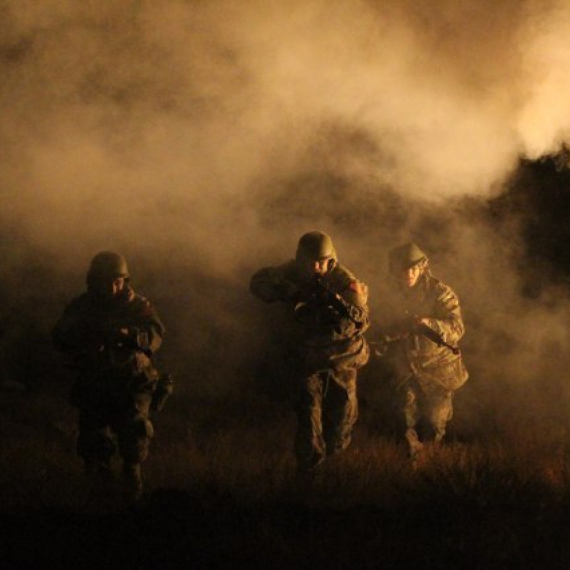



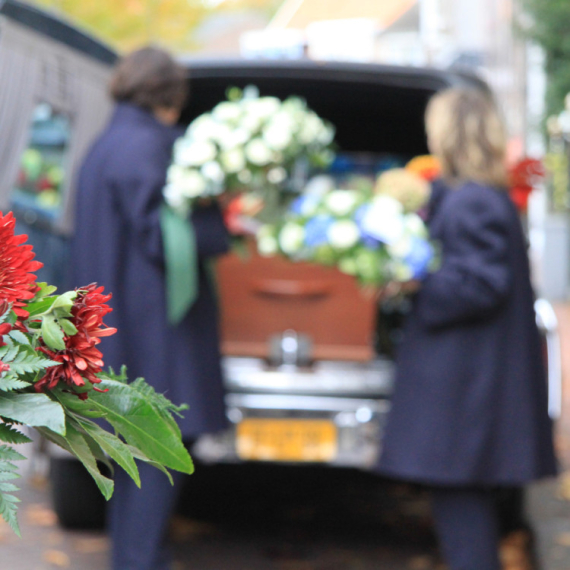
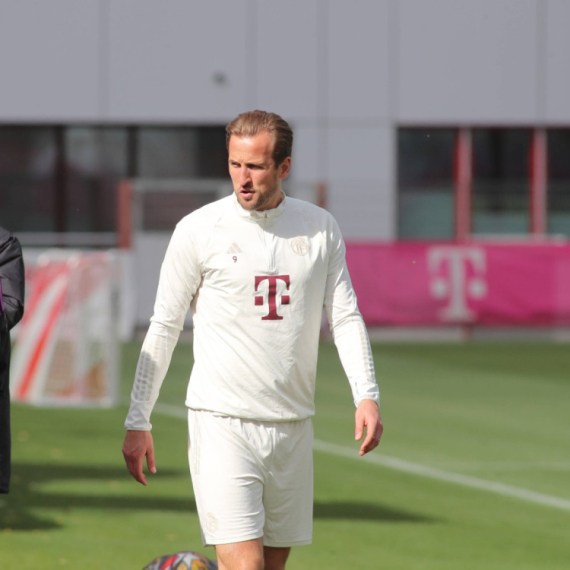

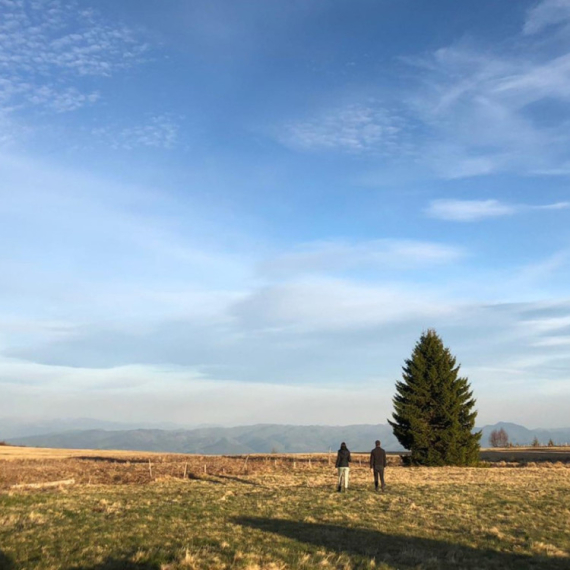

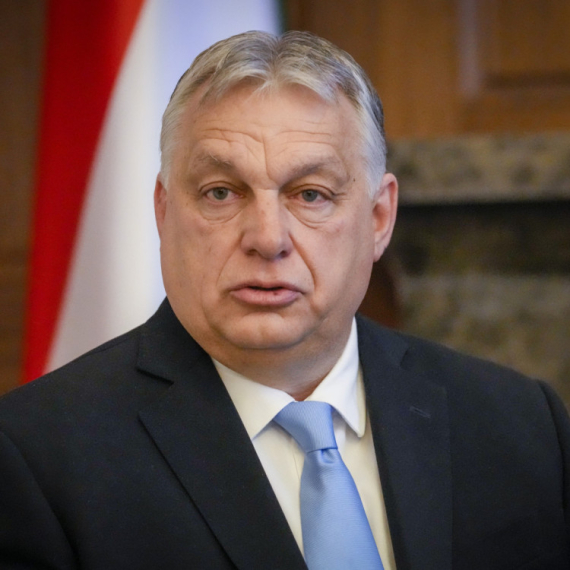
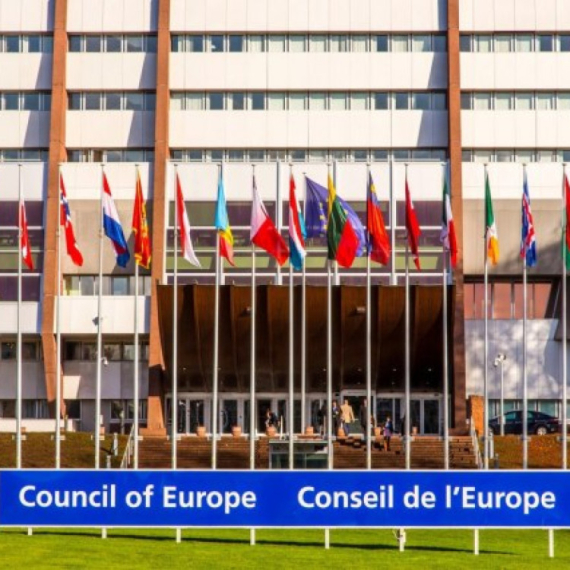
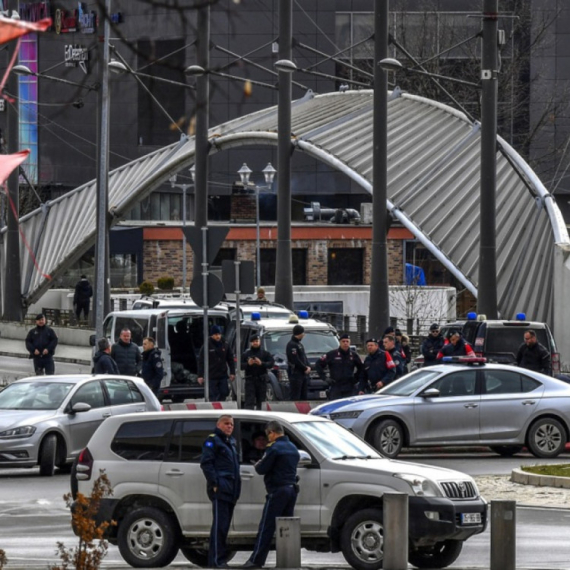
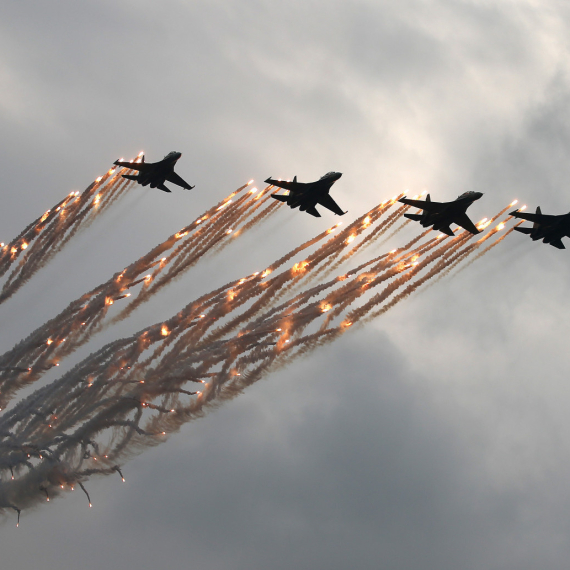



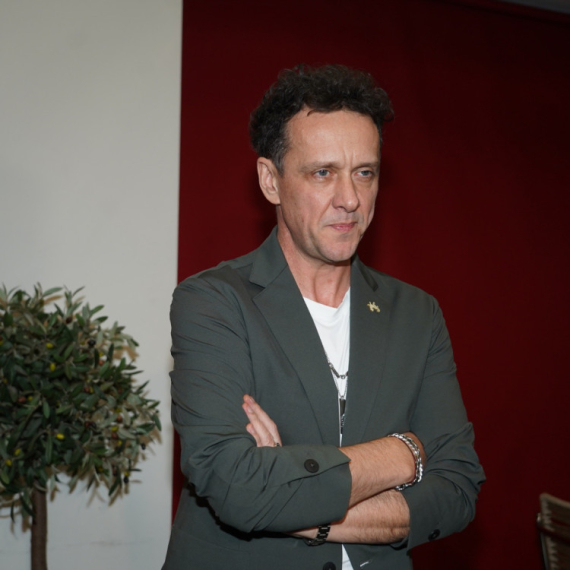



















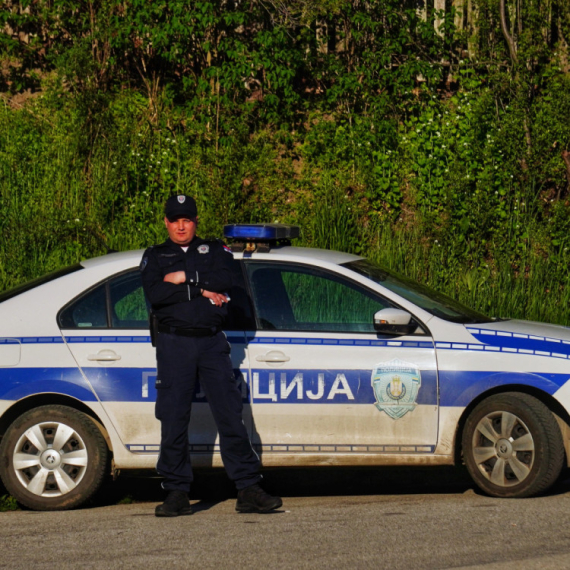
















Komentari 23
Pogledaj komentare